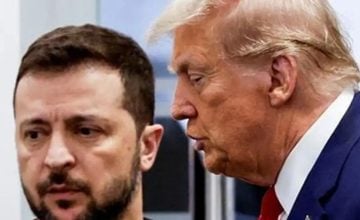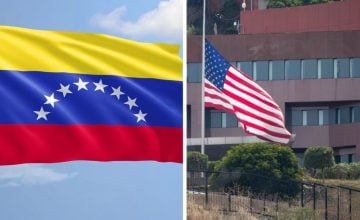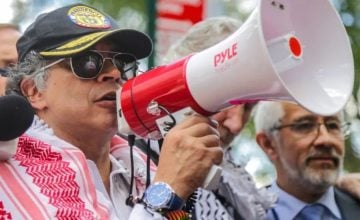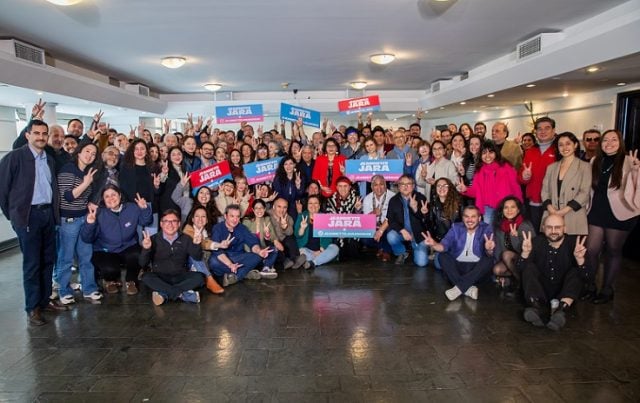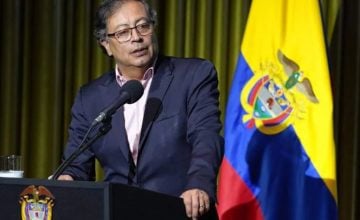By Daniel Jadue
When the Nobel committee chose to award the Nobel Peace Prize to María Corina Machado, it effectively labeled as ‘peace’ what the Global South knows as intervention and tutelage.
They handed it to a figure who for years has aligned with a foreign power to promote a coup in her own country; someone who has even urged, in international forums, foreign military intervention in favor of the genocidal State of Israel, and who, amid Gaza’s devastation, defends that state with the grammar of ‘self-defense’.
At the same time, the committee sidelined Greta Thunberg, who from a very early age has shown more awareness than most leaders in what is called the West. Unlike Machado, she has demanded a ceasefire and an end to genocide.
Even if this decision plays like theater of the absurd, it is far more than a casting error; it is a deeply political statement that buries the already contested prestige of a prize increasingly turned into a symbolic instrument of global capital. The Nobel operates as what it is: an apparatus of Atlantic hegemony that rebrands imperial order as moral virtue.
This is not the first time. They once crowned Kissinger over Indochina’s craters and over the victims of the military dictatorships he helped impose across the Americas, and awarded Obama before the drones and his bid to revive U.S. intervention in Latin America.
The pattern is consistent: reward the ‘peace’ that manages barbarism, not the one that resists it. Gramsci put it plainly: hegemony rules not only with bayonets; it rules with narratives. And here the narrative is transparent: ‘democracy’ is whatever can be guaranteed by sanctions, blockade, and military threat; ‘peace’ is the security of markets and transnational capital, not the right of peoples to self-determination and to live without sieges.
Machado, who has invoked the TIAR, external ‘coalitions,’ ‘smart’ sanctions, and the full paraphernalia of outside coercion to obtain a government she will never win at the ballot box, embodies that peace in uniform. Fanon wrote the antidote: the ‘civilizing mission’ brings subordination, not freedom.
To reward that script in Latin America is to normalize tutelage over the continent under a humanitarian euphemism. That she also applauded Israel while the International Court of Justice (ICJ) issued measures over a plausible risk of genocide makes it obscene: it sanctifies a peace that excuses siege and mutes those calling for arms embargoes and humanitarian corridors.
The comparison with Greta only sharpens the picture: on one side, an activist who denounces wars and climate breakdown, two drivers of hunger and mass displacement; on the other, an imperial subordinate calling for external force and backing a state that pulverizes hospitals, schools, and camps. If the Nobel had to choose, it chose against peace. Marx and Engels already gave the key: ‘Law is nothing but the will of the ruling class made into law.’ Here, ‘peace’ is the will of the powers turned into ceremony.
Let no one be deceived: the prize is not just a symbolic gesture; it is political capillarity. It strengthens hard-line sanctions that starve populations, launders intervention by proxy, and stigmatizes those who defend ceasefire, negotiation, and sovereignty. Samir Amin called this ‘collective imperialism’: a mesh of capital, governments, and media that parcels out spheres of influence and administers law as convenient. Today that mesh bites its tongue to avoid saying Gaza and spends itself in praise of anyone who legitimizes exception as method.
‘And what do you propose?’, the chorus of common sense will ask. What the word peace should always have meant: immediate ceasefires where sieges persist; arms embargoes on those who violate international humanitarian law; lifting unilateral, illegal sanctions that punish peoples; political dialogue without a gun on the table; restoration of sovereignty without tutors. And at home: put the use of the armed forces in foreign policy to a referendum, ban arms exports to active conflicts, and dismantle the fetish of ‘humanitarian intervention’ as a quick-fix solution.
The Nobel chose. We must choose, too. Either we confuse peace with armed order, or we recover its grassroots meaning: bread, shelter, rights, and self-determination. Rosa Luxemburg left the compass: socialism or barbarism. In this edition, the committee chose barbarism in tuxedo. It is time to build, without its blessing, a peace that needs neither marines nor lobbies to exist.
By Daniel Jadue.-



